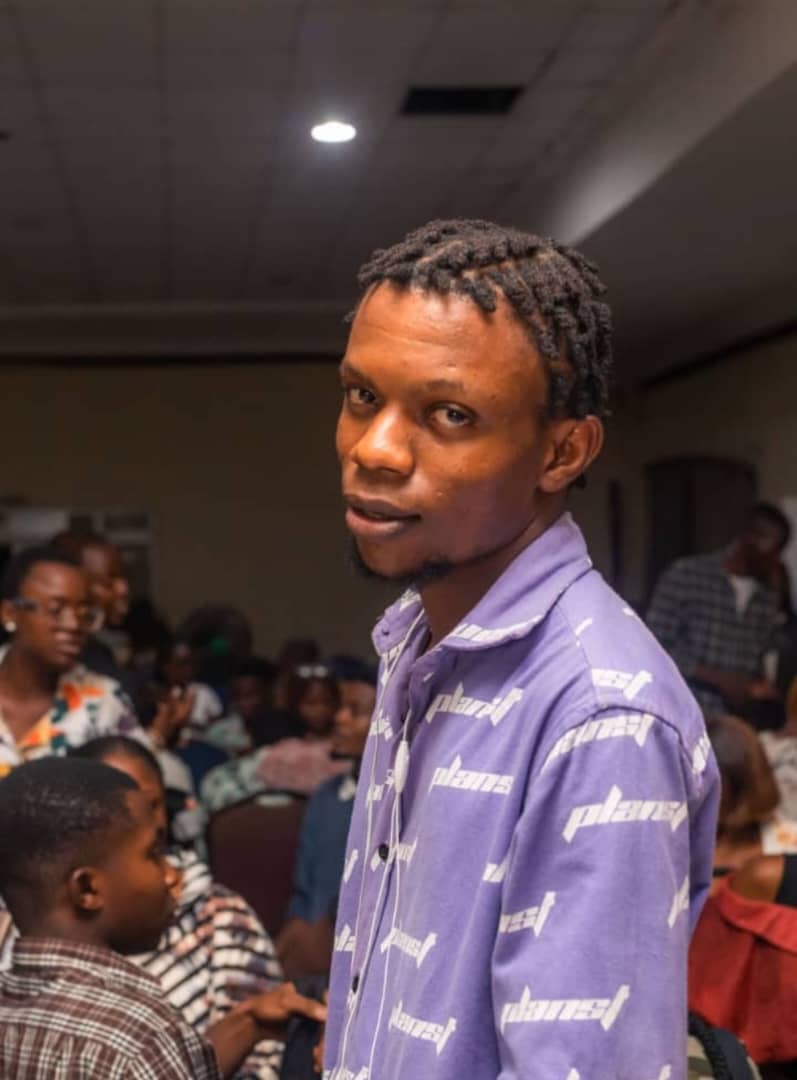Seun’s* journey as a data analyst is the kind of story that inspires anyone who has ever wondered if there’s more to life than just “getting by.” Once a young graduate scraping through with modest paychecks in Nigerian startups, he is now a digital nomad exploring Africa.
As a data analyst, Seun has gone from Lagos to running structured analyses for one of the biggest companies in the world, all while living the life he once only dreamed about. But how exactly did he pull it off? And more importantly, what lessons can anyone hoping to follow a similar path learn from his journey?
So Seun, tell me a bit about your beginnings. Where did you grow up?
I grew up in Oyo State. Ibadan, to be precise. It was a calm childhood: boarding school, football on dusty fields, books everywhere. I was the kind of kid who loved numbers. Mathematics was my comfort zone, and for a long time, I thought that would naturally lead me into engineering.
It didn’t?
Not at all. My first dream was to study Chemical Engineering. But WAEC scattered that plan. My SSCE results were delayed, I had to rely on GCE, and my Biology didn’t go well. By the time my results came out, the Chemical Engineering department was whole. I wasn’t ready to sit at home for a year, so I settled for Agricultural and Bioresources Engineering. Honestly, I had no idea what that was. I just wanted to be away from home.
So, at what point did you realize your degree wouldn’t be enough?
It was in my 300-level. Agricultural Engineering was fine, but I couldn’t see myself working in that field in Nigeria. The jobs weren’t there. Even my internship at an obscure ministry in Ilorin confirmed it. I’d sit in a hot office watching staff shuffle papers from one desk to another, and I thought: this can’t be my life. That’s when I started applying for jobs online. I was applying for everything: consulting, banking, tech. My mindset was simple: this degree alone won’t feed me.
YOU MIGHT LOVE THIS: 10 High-Paying Online Jobs For Students In Nigeria
How did you make the shift into programming?
At some point, I took a programming course in Visual Basic. It was outdated, but it lit something inside me. I realized I enjoyed solving problems with code more than learning about irrigation systems. From there, I started poking around programming communities, reading online, and experimenting. It was still just curiosity, but it planted the seed. I didn’t continue because I didn’t have a laptop. I started again during NYSC. I got gifted a computer by a distant uncle. He has heard me talk about programming a lot. I don’t know if he understood it or not, but he asked me what I needed to make it far. I said a laptop. He sent one two weeks later. I doubled down on coding. I got an internship program. I was a beginner, but it gave me exposure, and I later joined the first Andela Learning Community, and that’s where my eyes really opened. I saw Nigerians building products and solving real problems with tech, and most interestingly, living the life I never thought was possible. I desired to be like them. I started applying to startups.
Strategic. How did you get in?
I gave myself a timeline. Compiled names of startups I wanted to work for. I started emailing everyone who worked in those places that I could identify. Out of 100 applications, one clicked. Startups were the only ones willing to take a chance on someone like me: young, eager, but not polished. My first real experience was with a fintech company in Lagos. The pay was ₦70,000. It didn’t care enough. It was enough to get me by living in my uncle’s house in Laos, but it was chaotic. One day I was reconciling transactions, the next debugging a script, the next explaining failed transfers to customers. That chaos taught me everything, and I was willing to learn because I knew where I wanted to be.
I can tell it has been a journey
It has been. After fintech came logistics. Lagos traffic alone is a logistics nightmare. I was building crude dashboards to track drivers and deliveries, sometimes with messy data that took 12 hours to clean. Then I moved into telecoms. I was paid around ₦98,000 after tax and I did everything. I’d wear a helmet and install meters at sites in the morning, then crunch usage data for corporate clients in the evening. My JD said “analyst,” but in truth, I was an analyst, an engineer, and a customer support rep rolled into one. It wasn’t glamorous, and the pay wasn’t much, but it toughened me.
And then Amazon happened. How did it happen?
A recruiter reached out to me on LinkedIn. I listened to someone discuss how the best storytellers often secure the most desirable jobs. I decided that day to talk about my job. I created a LinkedIn account and began sharing my career journey and everything in between. People found it relatable and started following me. I guess the recruiter was one of those.
He messaged saying that Amazon is assembling an African team and would love for me to apply. At first, I thought it was a hack. He messaged again, and then I knew he was serious. The recruitment process was brutal. I’m talking about multiple interviews, technical tests, and case studies. But once I got in, it was like another world. At startups, you’re the firefighter. At Amazon, everything is structured. Everyone knows their role, and resources are endless. At first, I couldn’t believe I was being paid to “just” analyse data.
Let’s talk about the Amazon paycheck. What’s the bump like?
Night and day. My first startup job paid ₦70,000 a month. I survived because I lived with my uncle. Later, it moved up to ₦98,000, then ₦250,000, and ₦450,000, until Amazon changed everything. The first Amazon salary I saw, I looked at it with disbelief. I couldn’t sleep. Everything I wanted to do with money sort of fizzled out of my mind. I had a lot of money issues, but at that instant, I couldn’t think of anything. I called my uncle and mum, and she burst out crying. For the first time in my life, I wasn’t just surviving, I was comfortable. I could live the life I used to dream of.

I was a victim of lifestyle inflation. It’s funny because before Amazon, I used to calculate every naira. I would think twice before buying suya, but once that first Amazon paycheck hit, it felt like the world opened up. Suddenly, things I once saw as “luxuries” became normal.
The first sign was gadgets. I didn’t even think twice before buying the latest iPhones then, Apple Watch, and AirPods followe. Shopping. I was ordering clothes online, walking into stores and buying things just because I could. Eating out became a weekly routine, then almost daily. I was exploring the best restaurants in Lagos, and everywhere I travelled to for the longest time.
Travel was another big one. Flights, Airbnbs, weekend trips, before Amazon, that would have been impossible. But now, hopping on a plane to Zanzibar or Cape Town felt like nothing. And yes, girls came into the picture too. Dates, gifts, and all. I was definitely spending way more than I ever imagined.

At first, it felt good, like I was finally living the life I used to dream about. But after a while, I noticed how easy it was to lose track. No matter how much you earn, if you don’t put boundaries, money slips through your fingers.
READ MORE: Smart Money Moves to Make in Your 20s and 30s
I’m happy for your growth. Can you give a breakdown of how you spend now?
Sure.
· Travel: Around 15% goes into flights, Airbnbs, and experiences. Last year alone, I worked from Nairobi, Zanzibar, Kigali, and Accra.
· Savings & Investments: About 50% goes into index funds, crypto, and some stocks and real estate. I have some land in Ibadan. My mum saw them and convinced me to buy, and I did.
· Family: I don’t see it as a black tax. They have been there for me, and this is the least I can do. Around 10% supports my mum in Ibadan, my siblings’ fees, and occasionally my uncle, as well as my friends. I’m single, so that’s everybody.
· Lifestyle & Comfort: 10% covers gym memberships, eating out, gadgets (I bought the new iPhone guilt-free), and subscriptions for courses, Netflix, and others.
· Miscellaneous: The rest goes into an emergency fund. I don’t know what might pop up tomorrow.
So, what does this digital nomad life look like on a day-to-day basis?
Picture this: in the morning, I’m logging in from a co-working hub in Nairobi, running dashboards for Amazon teams across time zones. The next afternoon, I’m eating nyama choma.

On weekends, I might be climbing Table Mountain in Cape Town or strolling through Makola Market in Accra. Amazon makes that balance possible.
What’s the biggest challenge of being a digital nomad?
Internet. (laughs) First is payment. Nigerian cards don’t work in some cities. Even virtual cards. Internet downtimes sometimes. Zanzibar has great vibes but poor bandwidth. Finding stable workspaces is a constant battle. And then there’s loneliness. New cities mean you’re always starting from scratch socially.

And the reward?
Freedom. I get to design my life. Morning: analyse datasets for Amazon. Evening: watch the sunset in Cape Town or try thieboudienne in Dakar. That blend of career and exploration excites me.
Looking back, what do you think shaped your journey the most?
Resilience. Nothing was linear. From Biology in Oyo to stumbling into programming, grinding through startups, and then landing at Amazon. It’s been zigzags. But every detour taught me something. I’ve learned to embrace uncertainty and keep moving forward.
So, what’s next?
For now, I want to keep exploring. I have visited a couple of countries outside of Africa, but there are still many African cities I haven’t been to. I have visited 28. I also want to mentor more young Nigerians starting in data. Long term? Maybe I’ll build something of my own. But right now, I’m enjoying the journey: data during the day, discovery after hours.
*Name has been changed to hide his identity.
RELATED ARTICLES
Life Of The Soldier Serving Nigeria, And Securing His Future
The Many Lives of The Product Manager Building An AI Startup
The Money Moves Behind Salome Dassah’s Legal Journey

I’ve lived many lives, but one lesson ties them all together: money is only as powerful as its utility. Through my work, I share stories about money and create guides for Africans who want to get the best out of theirs.
